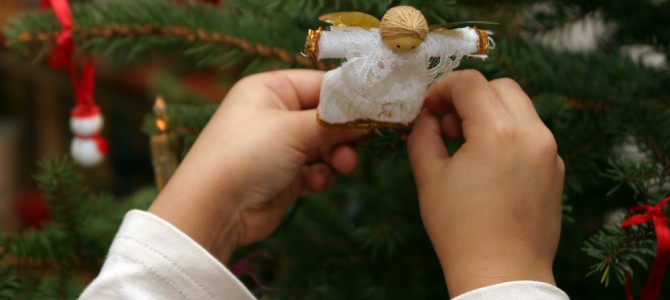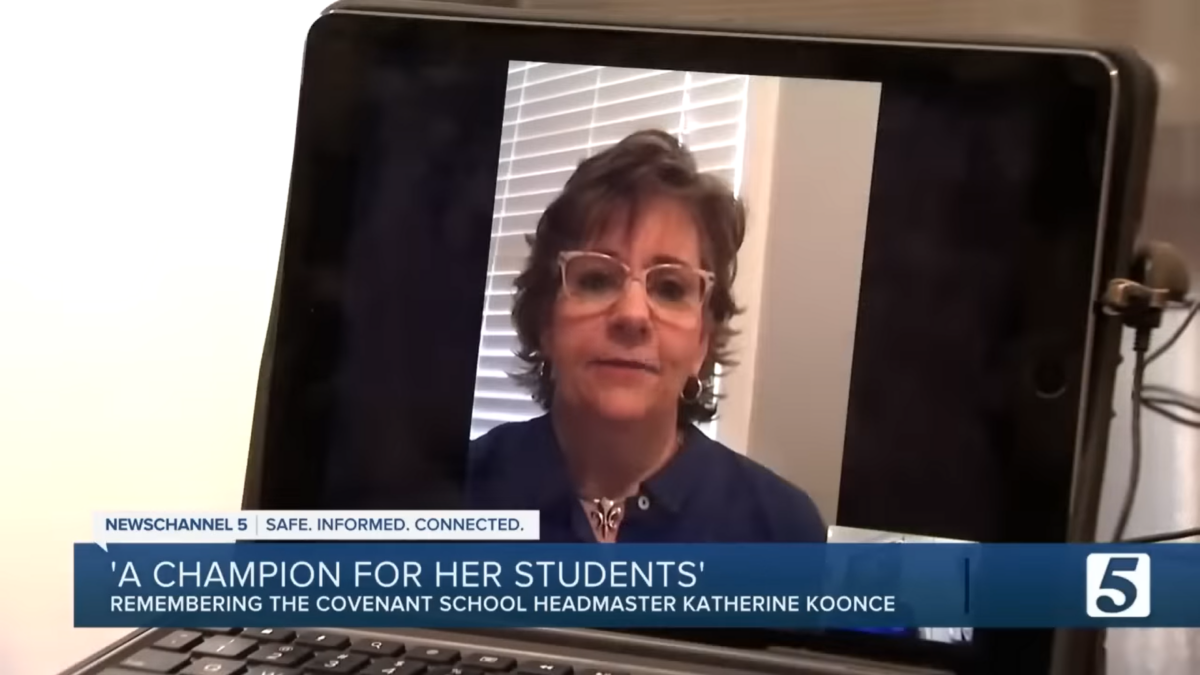
Remember for a moment what Christmas morning was like as a child (or consider what kind of Christmas morning you’re creating for your own children).
Many of us are fortunate to have warm memories—such as a fire crackling, cinnamon rolls baking, dad behind the video camera, siblings playfully teasing each other, and carefully wrapped presents waiting patiently under the tree to be transformed into a giant pile of crumpled paper and bows. Christmas morning comes with sweet anticipation and the assurance that you are loved.
Many others are not so fortunate. For 2.7 million children in the United States, with Christmas morning comes the painful reminder that a parent is not at home but in prison. Although these children have committed no crimes, they deeply experience the punishments of incarceration: social stigma, financial loss, hurt, worry, anger, and embarrassment. Yet they still love their parents—and long to be loved by their parents.
That’s where Prison Fellowship’s Angel Tree Christmas program comes in. Started in 1982 by former bank robber and ex-con Mary Kay Beard, Angel Tree exists to ease some of the pain children of the incarcerated experience during the holidays by enabling parents in prison to give their children Christmas gifts.
The Beginning of the Angel Tree
In 1972, Mary Kay Beard, one of the FBI’s “Most Wanted,” was arrested with 11 federal indictments and 35 charges from multiple states for grand larceny and armed robbery. Facing between 75 and 180 years in prison, Beard returned to her faith after reading Ezekiel 36:26 in jail—“I will give you a new heart and put a new spirit in you; I will remove from you your heart of stone and give you a heart of flesh”—and pleaded guilty to all charges. She was sentenced to 21 years in Alabama, but served, remarkably, less than six years of her sentence at Julia Tutwiler Prison for Women.
In 1982, former Nixon-aide and ex-con Chuck Colson invited Beard to join his extensive prison outreach ministry—Prison Fellowship—as Alabama’s first state director. Beard agreed, and Colson tasked her with coming up with a Christmas program.
When Beard’s team of volunteers asked her what kind of gifts they should take into prisons, she told them she had a different kind of program in mind. She remembered that when groups would bring in care packages (including items like soap, shampoos, and toothpaste) to the prison where she was serving time, she would see her fellow inmates trading items and then stacking them into small piles.
“I realized that each pile was for one of their children,” Beard says. “That is what they gave their children as Christmas gifts, because it was all they had. And I thought, ‘Just because she’s a thief or drug addict, or possibly even a murderer, doesn’t mean she doesn’t love her children.’”
So instead of creating a program that gave Christmas gifts to inmates, Beard came up with a program that would enable inmates to give Christmas gifts to their children. In December of 1982, Beard returned to Tutwiler and asked prisoners for the names and addresses of their children. Her team of volunteers wrote the information on paper angel tags then hung them on Christmas trees in two malls in Montgomery, Alabama.
The tags were quickly snatched up, Beard returned to the prison asking for more names, and that Christmas 600 children received gifts as part of Angel Tree. And the program grew.
From Mom or Dad, With Love
Since its inception, Angel Tree has distributed over 10 million gifts to children of the incarcerated. This year, says the national director of Angel Tree, Charles Rock, the program is on track to deliver 300,000 gifts to children across the United States.
Each fall, Prison Fellowship staff, volunteers, and chaplains go into between 1,200 and 1,400 facilities and invite inmates to participate in Angel Tree. They ask inmates for the name, age, and address of their child, to select a gift category (such as “soft bath toys” or “dolls and action figures”), and then to write a note on the gift tag.
After a vetting process—which ensures there are no restraining orders against the inmate and that the primary caregiver supports contact—lists with children’s names are distributed to churches and small businesses, which make paper angel tags, typically hang the tags as ornaments on a Christmas tree, and invite congregants and customers to participate. Participants select a tag, purchase a gift between $15 and $25, then either hand-deliver it to the family’s home or host a community Angel Tree party.
“Angel Tree is a local ministry, a personal ministry,” says Rock. “We try to serve these families by helping provide a pathway for connection,” he says, and participants are encouraged to maintain relationships with the families to whom they deliver gifts throughout the year. Rock emphasizes that, as the old truism goes, it’s not the gift that counts, but the thought behind it.
“Regardless of what a child gets for Angel Tree Christmas,” he says, “it’s the most important thing that they have.” He says he has heard of children who have gotten footballs and slept with them for years, and tells me the story of a young girl living in Oregon who wore the Oregon Ducks sweatshirt she received through Angel Tree in the “dead heat of summer,” because it was the one thing she had from her dad.
He has also heard of children who have shoeboxes full of Angel Tree tags. “It’s not just a piece of paper that was stuck on a gift,” he says. “That is a connection with their parent when they weren’t able to be there at Christmas.”
“There are so many stories that demonstrate the real value of the program,” says Rock. Angel Tree helps connect incarcerated parents and their children, empowering prisoners and meeting the needs of children, restoring relationships and strengthening fragile families.
“Children don’t care about things if they know they are first of all loved,” Beard says. Angel Tree provides incarcerated parents with a pathway for telling their children they love them.
That’s a valuable thing, indeed, but the program’s salt is also in what it gives participants—an opportunity to serve a population that is too often forgotten and a reminder of what giving gifts at Christmas should be all about.
It really isn’t about what you give or receive, but the thought behind it. Gifts are an opportunity to show others that we know them, we remember them, and we love them. If that is your motivation this Christmas, you are in for a sweet Christmas morning.
Note: Although the Angel Tree Christmas program works exclusively in churches, para-church organizations, and local businesses, Angel Tree also provides scholarships to send between 5,000 and 8,000 children to camp each summer. If you would like to donate to support a child with a parent in prison this Christmas, you can give to Angel Tree here.









